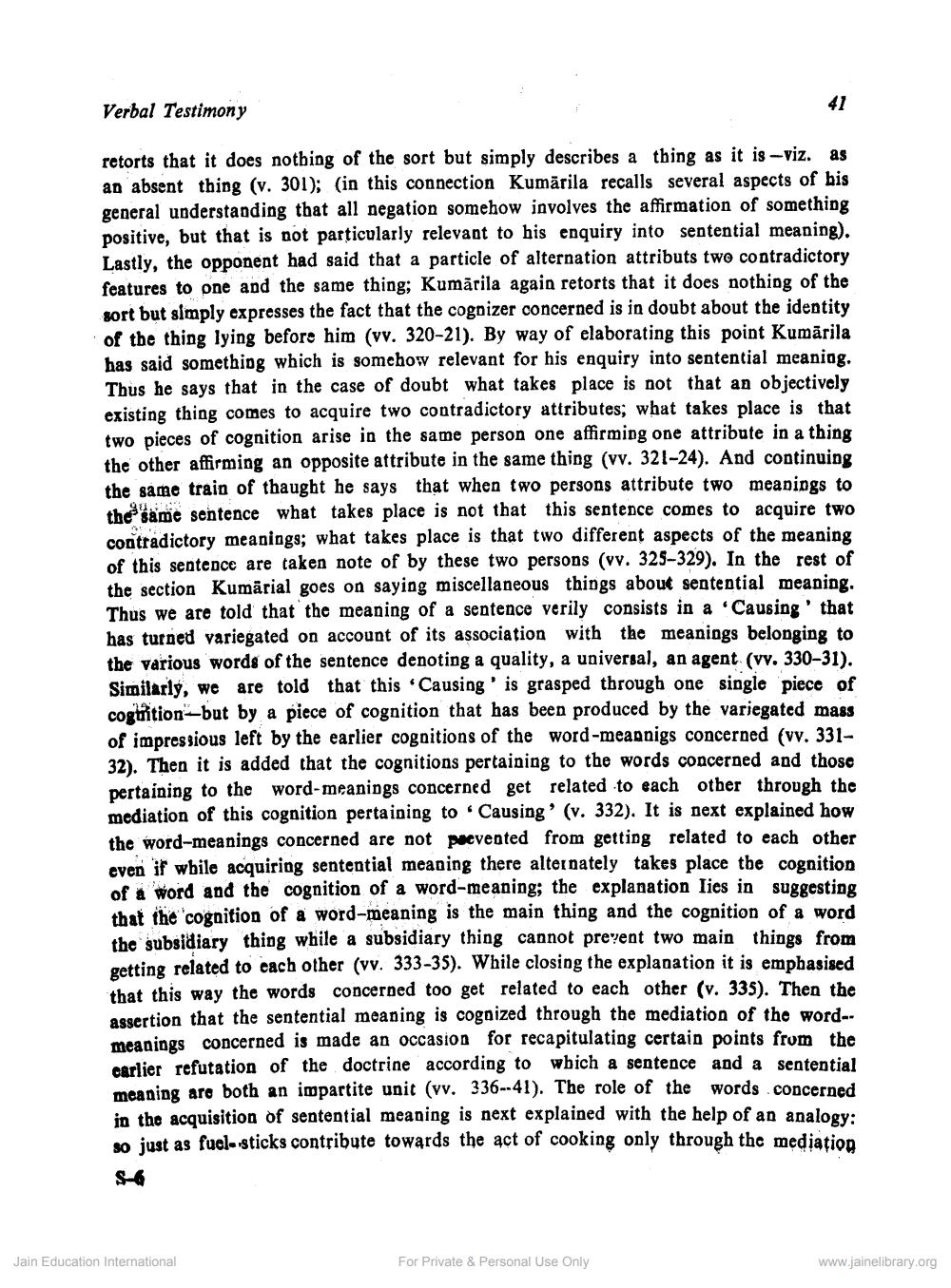________________
Verbal Testimony
retorts that it does nothing of the sort but simply describes a thing as it is - viz. as an absent thing (v. 301); (in this connection Kumārila recalls several aspects of his general understanding that all negation somehow involves the affirmation of something positive, but that is not particularly relevant to his enquiry into sentential meaning). Lastly, the opponent had said that a particle of alternation attributs two contradictory features to one and the same thing; Kumārila again retorts that it does nothing of the sort but simply expresses the fact that the cognizer concerned is in doubt about the identity of the thing lying before him (vv. 320-21). By way of elaborating this point Kumārila has said something which is somehow relevant for his enquiry into sentential meaning, Thus he says that in the case of doubt what takes place is not that an objectively existing thing comes to acquire two contradictory attributes; what takes place is that two pieces of cognition arise in the same person one affirming one attribute in a thing the other affirming an opposite attribute in the same thing (vv. 321-24). And continuing the same train of thaught he says that when two persons attribute two meanings to the same sentence what takes place is not that this sentence comes to acquire two contradictory meanings; what takes place is that two different aspects of the meaning of this sentence are taken note of by these two persons (vv. 325-329). In the rest of the section Kumärial goes on saying miscellaneous things about sentential meaning. Thus we are told that the meaning of a sentence verily consists in a 'Causing that has turned variegated on account of its association with the meanings belonging to the various words of the sentence denoting a quality, a universal, an agent (vv. 330-31). Similarly, we are told that this Causing' is grasped through one single piece of cogmition-but by a piece of cognition that has been produced by the variegated mass of impressious left by the earlier cognitions of the word-meannigs concerned (vv. 33132). Then it is added that the cognitions pertaining to the words concerned and those pertaining to the word-meanings concerned get related to each other through the mediation of this cognition pertaining to Causing' (v. 332). It is next explained how the word-meanings concerned are not peevented from getting related to each other even if wbile acquiring sentential meaning there alternately takes place the cognition of a word and the cognition of a word-meaning; the explanation lies in suggesting that the cognition of a word-meaning is the main thing and the cognition of a word the subsidiary thing while a subsidiary thing cannot prezent two main things from getting related to each other (vv. 333-35). While closing the explanation it is emphasised that this way the words concerned too get related to each other (v. 335). Then the assertion that the sentential meaning is cognized through the mediation of the word-- meanings concerned is made an occasion for recapitulating certain points from the carlier refutation of the doctrine according to which a sentence and a sentential meaning are both an impartite unit (vv. 336-41). The role of the words .concerned in the acquisition of sentential meaning is next explained with the help of an analogy: so just as fuel- sticks contribute towards the act of cooking only through the mediation S
Jain Education International
For Private & Personal Use Only
www.jainelibrary.org




